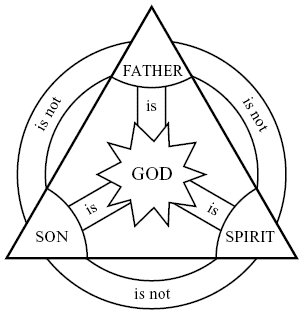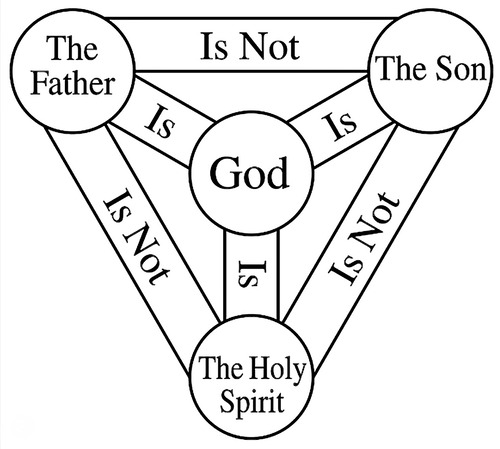God and Evil: Can they Coexist?
Why Does A Loving God Allow Evil to Exist? A Christian’s Response to Scepticism
The Paradox of Evil One of the most vexing questions posed by believers and sceptics alike is why a loving, all-powerful God would allow extreme evil and suffering into our world. This paradox has caused many to doubt God’s existence altogether. Sure the pain of evil cannot be domesticated. However, we have to admit the Bible does provide glimpses—for those who care to look—into God’s bigger, redemptive purposes undergirding our harsh realities. Do read on…
The Sceptic’s Challenge At first glance, the sceptic’s argument does seem airtight:
- The Bible depicts God as perfectly loving, good, wise and omnipotent.
- Horrific evil manifestly exists all around us.
- Therefore, this loving God cannot truly exist as portrayed.
Though logical, this view fails to account for the insights the biblical narrative gives us.
God’s Sovereign, Loving Oversight Scripture insists God reigns in full sovereign control, but allows evil to exist temporarily, so He might accomplish His ultimate loving purposes. Like a caring father permitting a difficult medical procedure for his child’s greater, long-term good, God has incorporated evil and suffering into His grander plan, promising to “work all things together for the good of those who love Him” (Romans 8:28). Nothing occurs outside His governance (Lamentations 3:37-38, Job 2:10).
Reasons for Allowing Evil Paradoxical though it may sound, God’s wisdom has permitted evil so He might:
- Accomplish Greater Good (Genesis 50:20) In the story of Joseph being sold into slavery by his brothers, we see evil intentions used for an ultimately redemptive purpose. Joseph tells his brothers, “You intended to harm me, but God intended it for good to accomplish what is now being done, the saving of many lives.” God can work through moral evil committed by humans to bring about an amazingly greater good that was part of His sovereign plan.
- Display His Glory (2 Corinthians 12:9) The Apostle Paul says God told him, “My grace is sufficient for you, for my power is made perfect in weakness.” When we experience suffering and difficulties, it highlights our human weakness and desperate need for God’s power and grace. Evil and hardship don’t negate God’s goodness, but actually serve to reveal to us His resplendent glory as He sustains us through many trials.
- Build Faith and Character (Romans 5:3-5) “We rejoice in our sufferings, because we know that suffering produces perseverance; perseverance, character; and character, hope.” God permits suffering and evil as a refining process to build in us resilience, strength of character, and an unshakable hope. Just as fire purifies precious metal, suffering helps purify our faith.
- Preserve Free Will (Deuteronomy 30:19) “This day I call the heavens and the earth as witnesses against you that I have set before you life and death, blessings and curses. Now choose life…” A world without the possibility of moral evil and suffering would be, for us, a world without free will—without the ability to choose to love God freely or to choose wickedness. As difficult as it is, free will opens the door for evil to exist, albeit temporarily.
Immanuel’s Intimate, Comforting Closeness While evil rages, the Bible assures us God is not impassively observing our pain from afar. Rather, He is in ultimate solidarity with suffering humanity through Jesus Christ, God Incarnate (Isaiah 53:3-5, Hebrews 4:14-16). On the cross, God in the person of Christ took upon Himself the full horror of evil’s depravity, experiencing our most severe afflictions. In our darkest moments, we find solace in knowing we do not suffer alone. God, in the person of Jesus, experienced the depths of our pain. His presence is not passive; it is intimate, comforting, and transformative. As we face life’s trials, we can approach the throne of grace with confidence, knowing Immanuel walks alongside us on this, our wilderness journey. Every inch of the way.
Hope Beyond Suffering Though the scars of evil run deep, God’s answer provides profound hope and restoration:
- The Remedy Christ’s redemption offers forgiveness and reconciliation with God, delivering us from evil’s wrath and redeeming our suffering for greater purposes we can’t yet fathom (Ephesians 1:7, Romans 8:18-25).
- The Renewal God promises a coming eternal reality free from sin and suffering, where He will “wipe away every tear” and dwell with us in perfect shalom (Revelation 21:1-4).
- The Reckoning God assures us that in the end, all evil and injustice will be judged and punished, eradicated—to make way for a new creation (Romans 12:19, Revelation 20:11-15).
In the meantime, God’s people continue to testify they experience His unshakable love, comfort and strength in the midst of their darkest agonies. He graciously meets us so He might repurpose our suffering to conform us to His redemptive image (2 Corinthians 1:3-5).
So, Why Does a Loving God Allow Evil to Exist? Finding Hope in a Broken World
To conclude, yes, life sure is tough. We see evil and injustice, and it often leaves us feeling lost and wondering where God is in all of this. But here’s the good news: the Bible tells us God loves us deeply. He doesn’t just see our pain, He feels it with us. He sent Jesus, who perfectly understood suffering, to walk through our broken world and offer a way out.
Jesus’ sacrifice on the cross wasn’t just a theory. He truly bore the weight of sin and death, and the empty tomb shows He did indeed conquer them!
One day, we’ll see God face-to-face and understand everything perfectly. But even now, He offers us hope. He invites us to trust Him, to believe His love is stronger than any pain. This hope goes beyond the troubles of this world, and it can mend our broken hearts.
If we’re hurting and searching for answers, let’s open our ears to God’s message. He understands our pain, and He offers us lasting hope and restoration.
When we are overwhelmed by hardship, God shouts out His nearness and comfort to us, His children, in unmistakable ways. At other times, He whispers gentle reminders of His loving presence.
Related Reads:
Editor's Pick

The Nashville Statement: Why Affirm It Despite Media Backlash?
WHY DO REFORMED CHRISTIANS STAND BY THIS STATEMENT ON MARRIAGE AND GENDER? When the Nashville Statement was released in 2017, [...]

Who Is Belial? Solving The 2 Corinthians 6:15 Mystery
Belial: This name from the pages of Scripture chills the soul. Who is this mysterious figure Paul invokes in 2 [...]

Celibacy Or Castration: What Jesus Really Means in Matthew 19:12
One of Scripture's most shocking misinterpretations led theologian Origen to castrate himself in the third century. His tragic mistake? Taking [...]

Philippians 4:13: Did Paul Really Mean We Can Do ALL Things?
"I can do all things through Christ who strengthens me." It's on gym walls, graduation cards, and motivational posters everywhere. [...]

The Ordinary Means of Grace: Why Are They Indispensable?
ORDINARY MEANS FOR EXTRAORDINARY TRANSFORMATION What if God's most powerful work in believers' lives happens through the most ordinary activities? [...]

Is the Bible God’s Word? Or Does It Only Contain God’s Word?
The authority of Scripture stands at the crossroads of modern Christianity. While some argue the Bible merely contains God’s Word [...]

Will We Remember This Life in Heaven? What Isaiah 65:17 Means
"Will I remember my spouse in heaven? My children? Will the joy we shared on earth matter in eternity?" These [...]

From Empty to Overflow: The Abundant Life Jesus Promised
(AND WHY YOU SHOULDN’T SETTLE FOR LESS) We're surviving, but are we thriving? If we're honest, there's a gap between [...]

What Does Jesus Save Us From?
THREE BIBLE TRUTHS ABOUT SALVATION "Jesus saves." We’ve seen it on bumper stickers, heard it shouted at sporting events, maybe [...]

If God Wants Everyone Saved, Why Aren’t They?
THE REFORMED VIEW ON GOD’S DESIRE VS HIS DECREE The question haunts every believer who has lost an unbelieving loved [...]
SUPPORT US:
Feel the Holy Spirit's gentle nudge to partner with us?
Donate Online:
Account Name: TRUTHS TO DIE FOR FOUNDATION
Account Number: 10243565459
Bank IFSC: IDFB0043391
Bank Name: IDFC FIRST BANK






